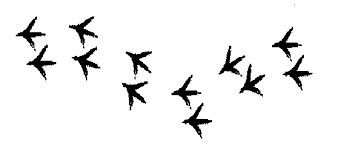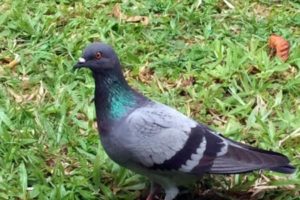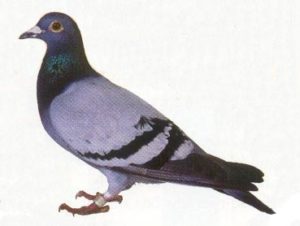Pigeon Removal & Info
Pigeons are really rock doves that were introduced from Europe by early settlers. They are now widespread and common across North America. Building ledges, rafters, and eaves are typical nesting sites for pigeons. The pair builds a rather messy nest in which the female lays one or two eggs. The incubation period is 17 to 19 days. The young are fed predigested food until they are weaned and leave the nest at 35 to 37 days of age. Frequent in the West Jordan, South Jordan, Riverton, Herriman and Grantsville areas.
Biology & Behavior
Breeding occurs during all seasons and several broods are raised each year. Pigeons live in an average of 5 to 7 years with some living more than 15 years. An adult pigeon will eat about one pound of food a week including seeds and other grains augmented with fruit, green feed, insects, and sufficient grit for digestion.
Noises
What Does a Pigeon Sound Like?
Their main sound is used by males to attract mates or defend their territories: coo roo-c’too-coo. The call they make from their nest is oh-oo-oor. A pigeon call of alarm is oorhh! Baby pigeons make sounds by snapping their beaks or hissing.
Tracks

Scat
A common sight on automobile windshields and statues, bird droppings can be dangerous to both people’s health and property. They are made up of a pasty substance mixed with uric acid and are typically white in color. The consistency of bird droppings is due to the fact that avian spices don’t produce urine the same way as other animals, and this helps birds retain water.
Damage
Pigeons are abundant in cities and around rural areas of Utah. They conflict with humans in several ways. Their droppings deface buildings, kill vegetation, and are aesthetically displeasing when deposited on benches, sidewalks, and cars. Pigeons eat and contaminate grain destined for human consumption. Pigeons carry pigeon ornithosis (psitacossis), encephalitis, Newcastle disease, toxoplasmosis, salmonella food poisoning, and other diseases. Histoplasmosis, a fungal disease that can infect people, can be contracted from accumulations of dusty pigeon manure. Pest controllers should wear a respirator when working around pigeon manure. Pigeon ectoparasites such as mites, lice, and ticks may readily bite people.
Pictures
Commonly ASKED QUESTIONS?
What do you do with trapped animals?
That answer depends on the state in which you live. Each state has their own laws that dictate what we must do when it comes to controlling wildlife on your property. In some states, we can trap, transfer and release the animals. In some states we can trap the animals, but we can only release them back onto your own property. If you don’t want the animal released on your property, it must be humanely euthanized. Sometimes we don’t even need to trap the animal and a simple exclusion device (one-way door) can be installed to allow the animal to exit your home and be locked out.
How much does it cost to remove an animal?
There are a number of factors that determine pricing; location of the animal (i.e. – chimney, attic, crawl, wall void, living area), condition of the animal (i.e. – sick, aggressive, dead), location and condition of the property and time of year (i.e. – weather condition, offspring present?). Generally speaking, pricing will vary by location and species for just the animal removal and that pricing usually does not include the entry repair.
I think I have birds in my chimney, can you get them out?
The answer to that question is most likely “Yes”, but are you sure what you’re hearing is birds? Raccoons easily invade chimneys and they have their litters on the smoke shelf of fireplaces. The sounds baby raccoons make are often mistaken for birds in chimneys and removal can be difficult. The only birds that nest in chimneys are chimney swifts and they’re federally protected, so removal can’t be performed, but exclusion can be – once they depart. If you have a pre-fabricated chimney and birds fall between the cooling tubes, removal is nearly impossible.
How soon can you get here?
Office hours vary from franchise to franchise, but generally speaking, office hours are 8am – 6pm M-F and 9am – 3pm on Saturdays.
Clients Testimonials
OUR EXPERTS WILL SOLVE THEM IN NO TIME.
Have Any Pest Problems?
Navigations
Contact Information

At Critter Removers we're committed to providing you with the highest level of services and solutions to best fit your pest or critter control needs.

